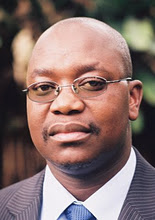Opinion by Rashweat Mukundu
Zimbabwe, we are told, now has a final draft constitution that we as citizens should either accept or reject in a referendum prior to elections expected later this year.

The extent of how this document reflects the wishes of the people is a matter of conjecture, save to say the referendum and adoption of the document is one of many political rituals we have to go through with no clarity as to their benefits for citizens of the country.
The nature of the discussions clearly indicates political interest took centre stage from citizens’ interests. In this regard, it is folly to expect the document to foster a process of change that resonates far beyond the political sector to transform our lives socially and economically.
Even as many people did not know what this constitution is about and talked of the need for food, clinics, roads and jobs during the outreach programme, those statements spoke to the real issues for the people.
They want a document that focuses on people rather than political issues and people should be at the centre of the constitutional debate. When politicians met to debate and compromise on the constitution, it is a natural expectation they have people at heart rather than party and personal interests.
We note, however, the new constitution has become an intense battleground for the contrasting political interests and debate has progressively drifted away from our understanding, participation and control.
There is no doubt there is a facade of Zanu PF having been forced to backtrack on a number of issues the party was pressing for.
On the other hand, nothing seems to have changed much as there appears to be no fundamental changes to policies that guide and influence national governance and the function of key national institutions.
Our political leaders have skirted fundamental issues that include the fact that challenges we have faced over the past decade are largely defined by disrespect for the rule of law, dysfunctional national institutions and their abuse.
With or without a new constitution it appears Zanu PF still has an upper hand in defining our political destiny.
Even as it appeared Zanu PF’s numerous objections and suggestions to the constitution have not been fully entertained, the party successfully took its government of national unity (GNU) partners down a long, winding road in order to bring us back where we have been since 1980.
That the pillars of Zanu PF control of this society have remained intact is shameful when, as stated earlier, they are at the centre of the national decline as a result of abuse and inefficiency.
It is extremely sad the political leadership opposed to Zanu PF had the cheek to inform us that they compromised with Zanu PF on many constitutional provisions in order to accommodate Zanu PF’s internal politics of succession.
We now have the strangest language in a draft constitution, of provisions that will be implemented after six years and others that would come into effect after 10 years.
We are not necessarily given details of this political horse-trading, save for an acceptance and confirmation by the MDCs that our lives are in the hands of Zanu PF, and that we need to give Zanu PF space to deal with its internal issues and re-organise without disturbances.
This constitution is not about the people; instead it allows President Robert Mugabe to ease out of political life without embarrassment and do so outside the control, will and wishes of the majority of people. There is suddenly a strange political convergence among GNU parties even as they appear to disagree.
We then ask: does it necessarily need a “new” constitution to negotiate Mugabe’s exit, or the GNU could simply have negotiated that without taking the nation down the garden path for three-and-a-half years at a cost of nearly US$50 million.
This constitution presents change without change; it marks a false transition and reinforces the continuation of a political culture that we have known for the past 30 years — that is the dominance of Zanu PF and subjection of the rest to its will.
While Prime Minister Morgan Tsvangirai says this is a social contract and about the people, there is little if any citizen footprint in the constitutional document and process.
The odds against the MDCs are well documented and cannot be overemphasised; their failure is to leave so much room for Zanu PF and Mugabe to use this important process to subvert the process of change. By leaving citizens out of the process the MDCs have missed a chance to reconnect with their political base that has driven opposition to Zanu PF for over a decade.
It was and still remains genuine grievances that drive opposition to Zanu PF and these remain unresolved today as desperation increases on a day-by-day basis. Although it has stabilised the socio-economic environment, the unity government has largely failed on issues such as service delivery, industrial revival and employment creation.
Our failure as citizens has been to allow piecemeal “political change” led by politicians to drive us nowhere. The stakes against the people are huge. The levels of social decay, suffering, hopelessness and pessimism are staggering, yet once again we seem to let a chance for change slip through.
Rather than “negotiate” Zanu PF’s internal issues and insert these into the Copac draft as constitutional issues, the MDCs should have returned to base and consulted the people on the way forward.
Rashweat Mukundu is chairperson of the Zimbabwe Democracy Institute





